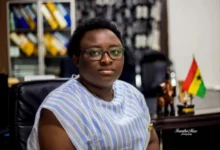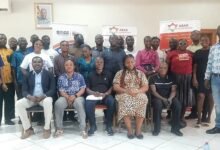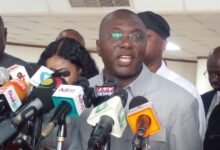
President Nana Addo Dankwa Akufo-Addo, and 48 other African Heads of state, are converging on Washington DC, United States (US) this week for the 2nd US-Africa Leaders Summit.
Convened by the US President, Joe Biden, the three-day event which starts today seeks to strengthen the longstanding US-Africa partnership to pursue shared global priorities.
It is expected to build on common values to foster new economic engagement, advance peace, security, and good governance, and reinforce commitments to democracy, human rights, and civil society.
Apart from working collaboratively to strengthen regional and global health security, the summit seeks to leverage the partnership to promote food security, respond to the climate crisis, amplify diaspora ties and promote education and youth leadership.
The great gathering returns eight years after its maiden edition was convened by President Barack Obama in 2014 to create a closer collaboration between the country and the continent.
The Chairperson of the African Union Commission (AUC), Moussa Faki Mahamat, is leading the African leaders’ delegation for the summit to be attended by civil society, businesses/ private sector, and young people from the continent.
However, Mali, Sudan, Guinea, and Burkina Faso were not invited due to their suspension from the AU over coups in their countries, while nations like Eritrea which does not have diplomatic relations with the US were exempted.
Addressing a virtual press briefing ahead of the summit, the Assistant Secretary, Bureau of African Affairs, US Department of State, Molly Phee, said the US would engage the suspended countries through different avenues.
“Out of respect for the AU, we did not invite governments that have been suspended by the AU for coups. So those countries will not be involved in this session, and we continue to work separately with those countries to encourage a return to a democratic transition, to move to a democratic track, so we’re in a better position to have a strong partnership with those countries,” she said.
Highlighting activities for the summit, Ms Phee said the first day was a diaspora/young leaders’ forum during which there would be a civil society forum and a conversation about the African Growth and Opportunity Act.
She said there would be sessions on peace, governance, and security, health cooperation and health security supporting the conservation, climate adaption, and just energy transition as well as the US-Africa space cooperation.
Day two, she said, was the third business forum since 2014, with a focus on promoting strong ties between African and US private sectors from trade, finance, energy, infrastructure, agribusiness, and digital.
The last day is the leaders’ session, during which US President, Joe Biden, would address the African leaders on the renewed partnerships and hear from them Africa’s desires as expressed through the Agenda 2063.
Senior advisor for the summit, Dana Banks, said the US’ desire to collaborate with Africa stems from its recognition that the continent was a key geopolitical player that would continuously shape the world.
“With one of the world’s fastest-growing populations, largest free trade area, most diverse ecosystems, and one of the largest regional voting groups in the United Nations, African contributions, partnerships, and leadership are essential to meeting this era’s defining challenges. The continent’s dynamic economies and populations really do provide the foundation for a bright future for the continent and the US,” she said.
Ms Banks explained that President Biden was deepening the US-Africa collaboration because it would help tackle shared challenges and seize opportunities, including increasing sustainable food production; strengthening health systems, and combating the COVID-19 pandemic.
The collaboration would be critical as the world responds to the climate crisis; builds a strong global economy while providing humanitarian assistance; and strengthening global democratic norms, institutions, and the rule of law.







